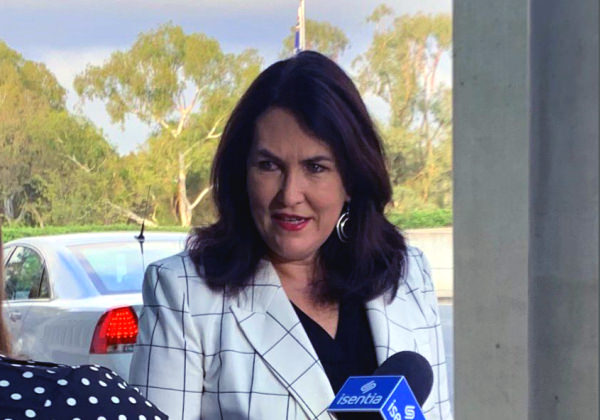
Labor Senator Deborah O’Neill, chair of the Joint Committee on Corporations and Financial Services.
Canberra watchers should be cautious before they lavish too much praise on the work on audit regulation being done by the Parliamentary Joint Committee on Corporations and Financial Services that began in August 2019.
That committee inquiry was initiated by Senator Deborah O’Neill principally because there were issues in overseas jurisdictions such as the United Kingdom being raised on the conduct of audit, concerns raised by the Australian Securities and Investments Commission about audit quality and various media reports about what appeared to be perceived breaches of independence rules or conflicts of interest in certain engagements.
There were also some complaints that the accounting firms were not hauled before the Hayne Royal Commission into financial services misconduct.
Whether the committee successfully deals with anything that emanates from Hayne-related matters remains to be seen. Its final report is due in December.
The committee has received submissions from 112 individuals or groups and has held four public hearings with one memorable day featuring all four major accounting firms. That hearing was also live tweeted and blogged by the Australian Financial Review. It added more colour to the day of this writer who was in attendance watching the firms get grilled on a range of matters.
A review of the transcripts, however, reveals that there are situations where some committee members chose to veer off course opportunistically to raise issues covered in media articles that have nothing to do with audit regulation.
The topic of audit regulation in its own right is narrow in scope and anyone that has spent a decent amount of time looking at the area in sufficient depth would groan at some of the questions being asked. Some of our parliamentarians might do well to remember that hitting a ball into the rough does not help you complete a round of golf any sooner.
The interim report, released in February, was generally welcomed by the profession principally affected by it.
This is not just because accounting firms, accounting bodies and other parties have a habit of welcoming reports because it is the polite thing for advocacy or commercial organisations to do. Some individuals and organisations got what they asked for in terms of increasing audit scope.
Any measure that increases audit scope increases audit fees because the audit risk is greater.
Clients will simply have to wear paying more for an annual audit when the scope of these audits of internal controls is settled. This may exclude some of the financial institutions that report into jurisdictions such as the United States given the stricter rules on the audit of internal controls that came into play following the passing of the Sarbanes-Oxley legislation after the great collapses of Enron and implosion of Arthur Andersen.
Any inquiry into audit regulation such as the one that is currently running that responds to some red flags raised in the marketplace, however, is evidence of the parliament’s profound disinterest, lack of enthusiasm and negligence of the area of audit regulation as a law-making institution over time.
The only time parliamentarians get really excited is when the pungent whiff of controversy becomes evident and some pollies see the possibility of media coverage in an area most people find rather unsexy in the usual course of events.
What parliamentarians ought to have been doing is expressing greater interest in the audit regulation process as auditing standards came before the Federal Parliament in the form of disallowable instruments and also having a more frequent conversation about current or emerging issues.
Every auditing standard that is set is set in accordance with laws passed by the parliament. The final arbiter of whether an auditing standard lives or dies or has additional scrutiny applied is the Australian parliament.
Standards are tabled in parliament and senators or members have 15 sitting days after a document has been tabled to move a motion to strike it off the books. A successful motion means that standard is repealed.
Parliament is largely made up of non-experts in accounting and audit and the non-experts have never lost control of the process despite rather deceptive arguments to the contrary raised in submissions to the committee by oxygen thieves that contend major accounting firms are in control of everything and auditors should not be permitted to set their own standards.
The standards are deemed fine unless the parliament inserts itself into the process, but the parliament typically chooses to wave auditing standards through.
Those people whinging about regulatory capture must have forgotten about disallowance.
Any genuine proof of conflicts of interest ought to compel bleaters in the bleachers to contact a member of parliament for further action.
The Australian parliament can repeal issued standards if it so chooses, which has occurred only once in the history of setting accounting standards in Australia and never in the case of auditing. Any community, journalistic, professional or political criticism of the operation of audit standard setting needs to be re-examined in the light of what is outlined above otherwise the criticisms should be dismissed as intellectual fairly floss.